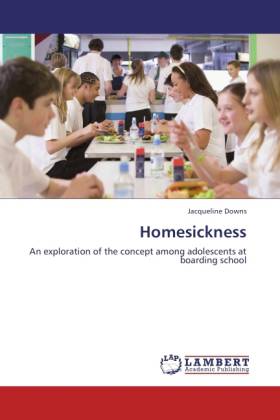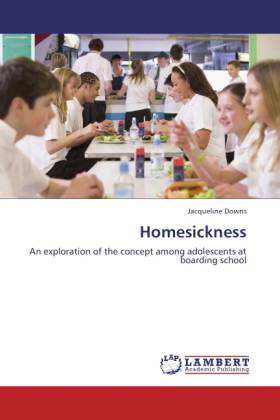
- Afhalen na 1 uur in een winkel met voorraad
- Gratis thuislevering in België vanaf € 30
- Ruim aanbod met 7 miljoen producten
- Afhalen na 1 uur in een winkel met voorraad
- Gratis thuislevering in België vanaf € 30
- Ruim aanbod met 7 miljoen producten
Zoeken
Homesickness
An exploration of the concept among adolescents at boarding school
Jacqueline Downs
Paperback | Engels
€ 48,45
+ 96 punten
Omschrijving
This descriptive study explored the concept of homesickness as experienced by a sample of adolescents at boarding school. A self-report questionnaire was completed by 212 respondents comprising Grade 8 and Grade 11 boarding students at four private schools in rural North Queensland. The findings indicated that definitions and features of homesickness concur with the recent research conducted in Britain, although the overall incidence of homesickness in this sample was higher. An integrative theoretical framework of identity development was used to explore environmental and individual factors which may act as determinants in creating and maintaining homesickness. Overall findings supported this approach, with sources of dissatisfaction with the school environment focussing on perceived lack of freedom, independence and privacy. Although few factors revealed age or gender differences, individual characteristics, such as low self-esteem, external locus of control and coping styles, were pertinent to the very homesick. In view of the paucity of literature on homesickness, directions for future research with Australian adolescents is discussed.
Specificaties
Betrokkenen
- Auteur(s):
- Uitgeverij:
Inhoud
- Aantal bladzijden:
- 108
- Taal:
- Engels
Eigenschappen
- Productcode (EAN):
- 9783838323275
- Uitvoering:
- Paperback
- Afmetingen:
- 150 mm x 220 mm
- Gewicht:
- 180 g

Alleen bij Standaard Boekhandel
+ 96 punten op je klantenkaart van Standaard Boekhandel
Beoordelingen
We publiceren alleen reviews die voldoen aan de voorwaarden voor reviews. Bekijk onze voorwaarden voor reviews.








